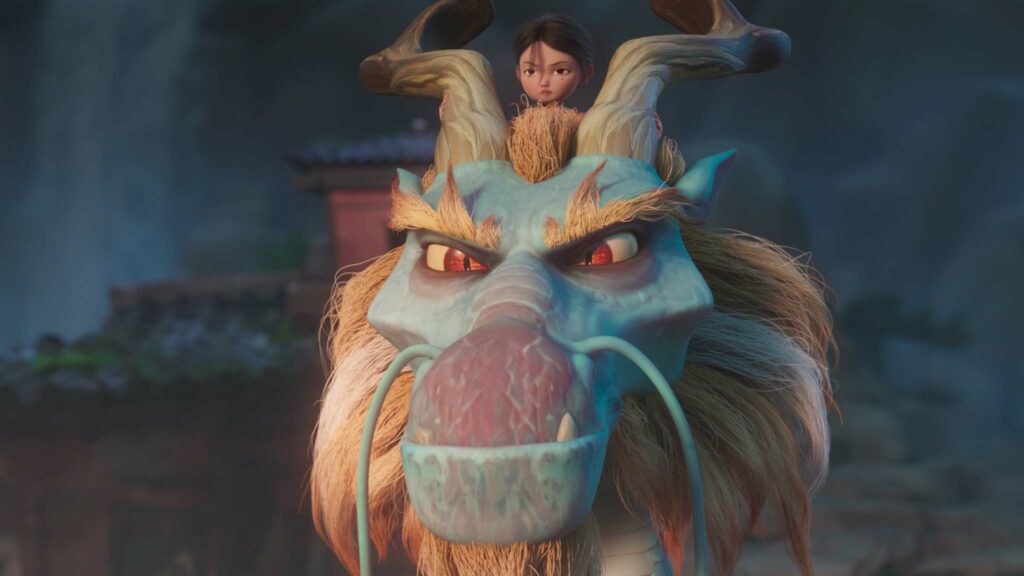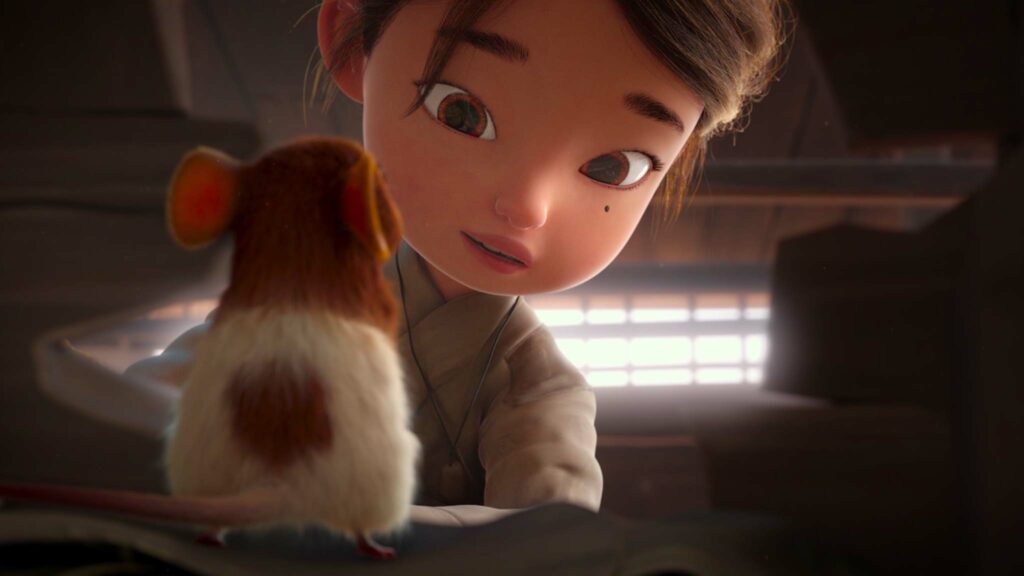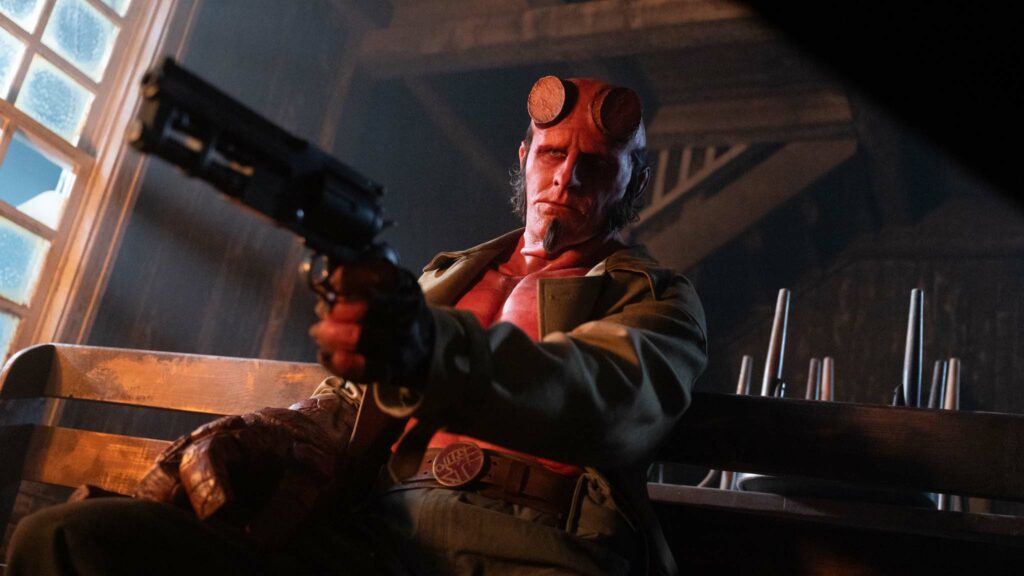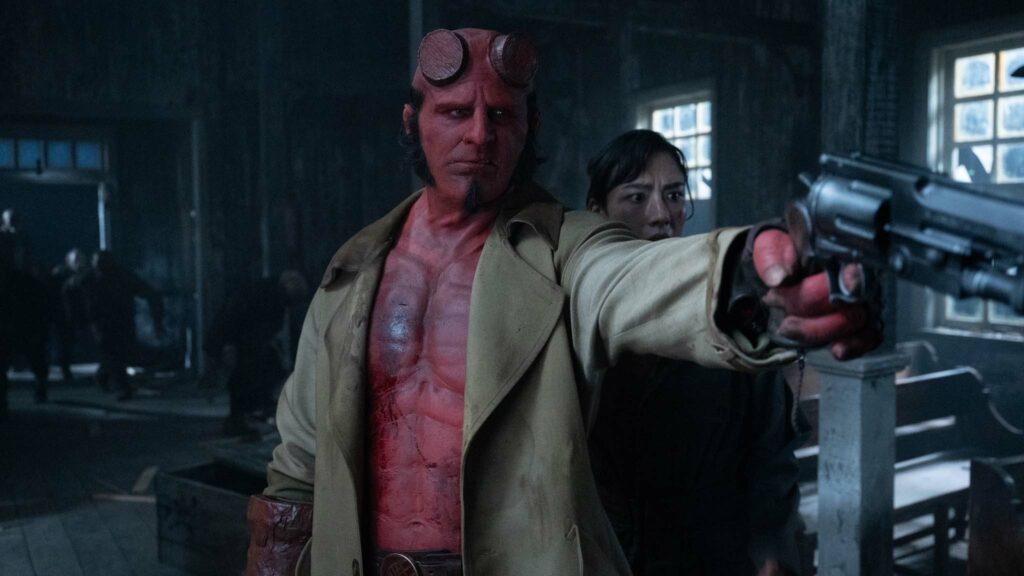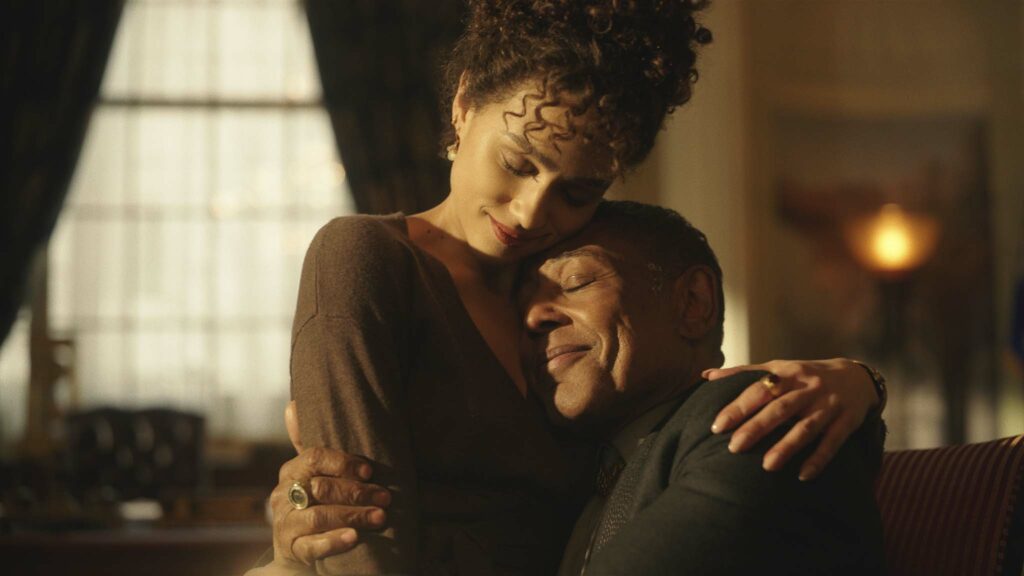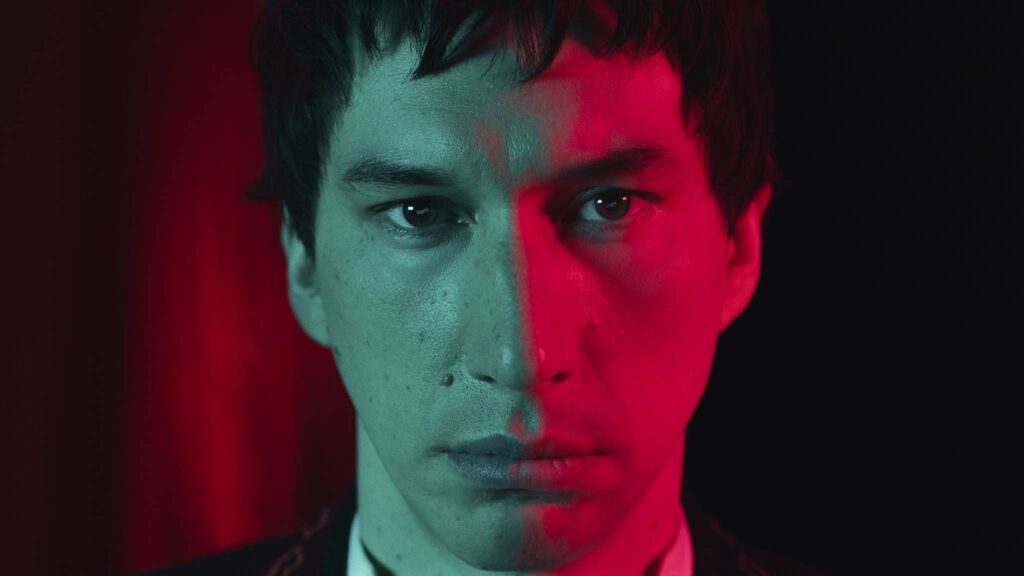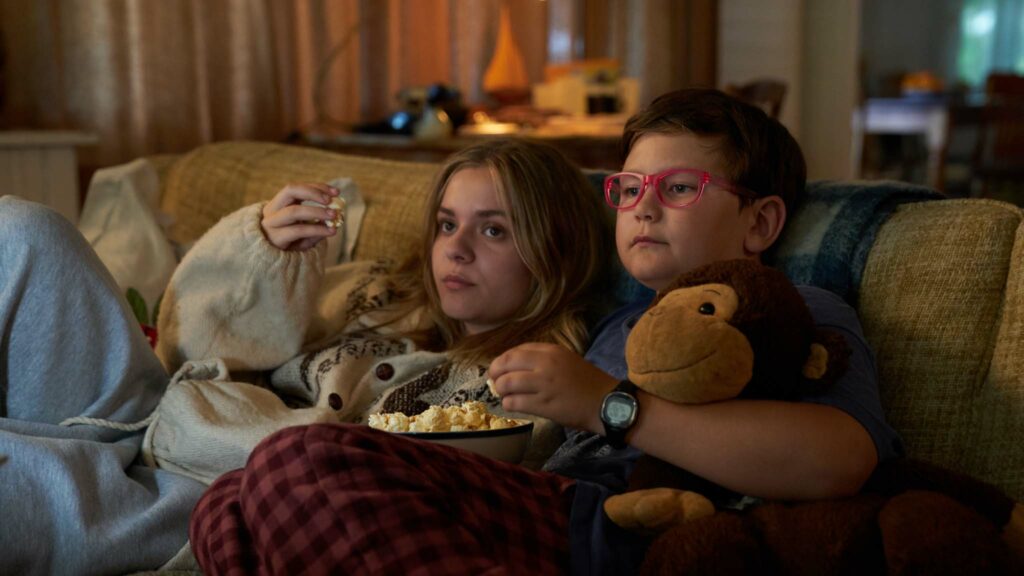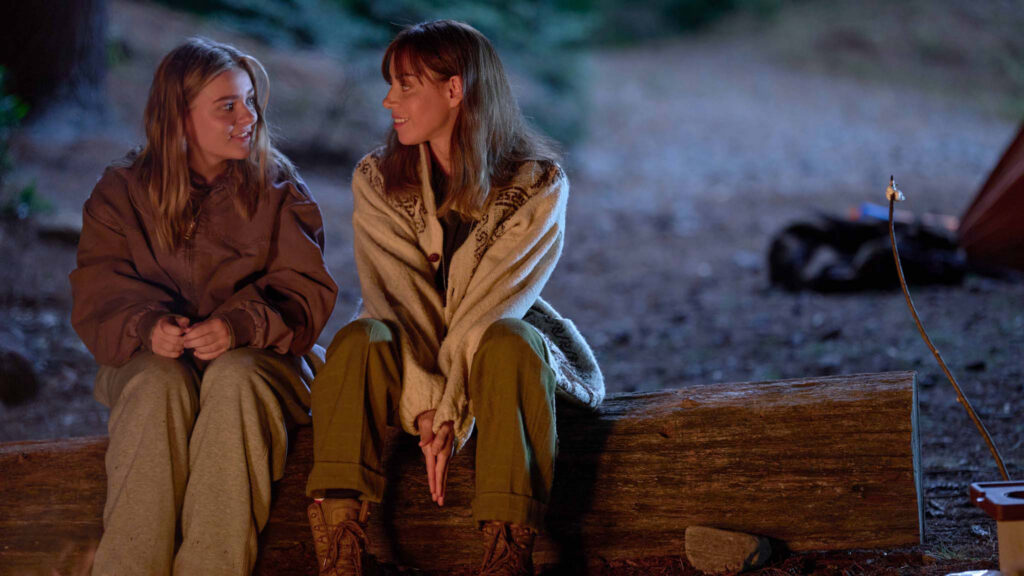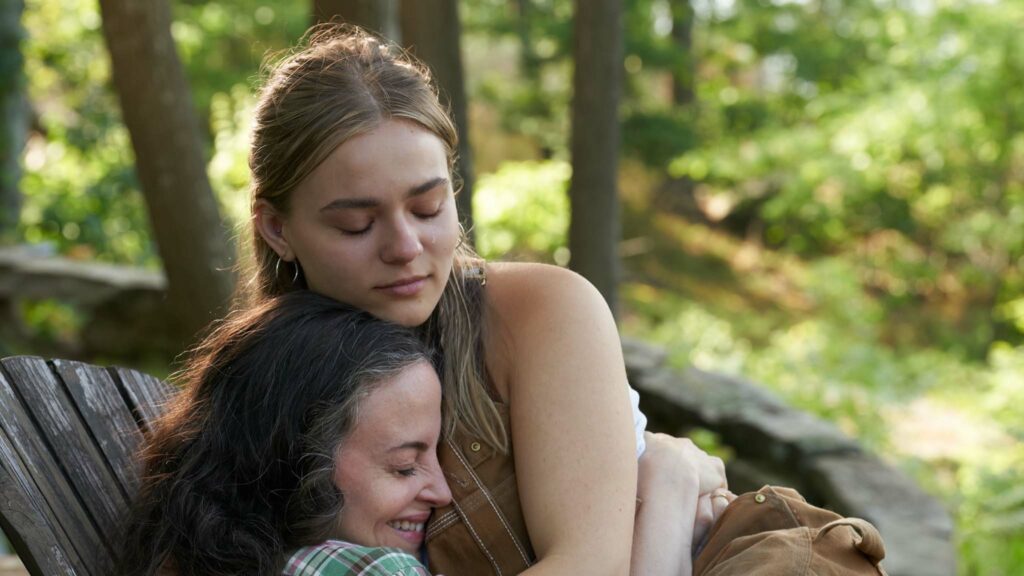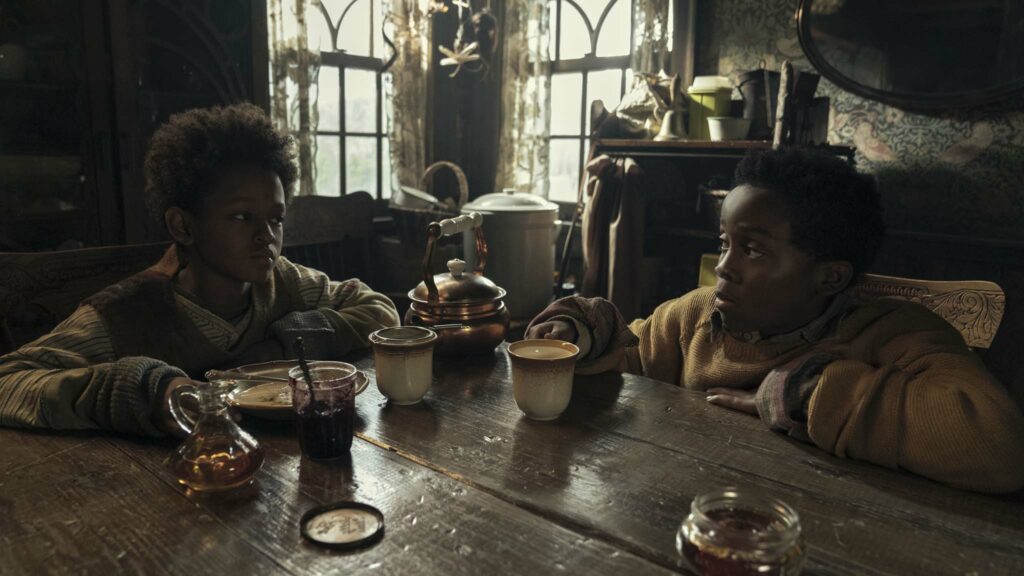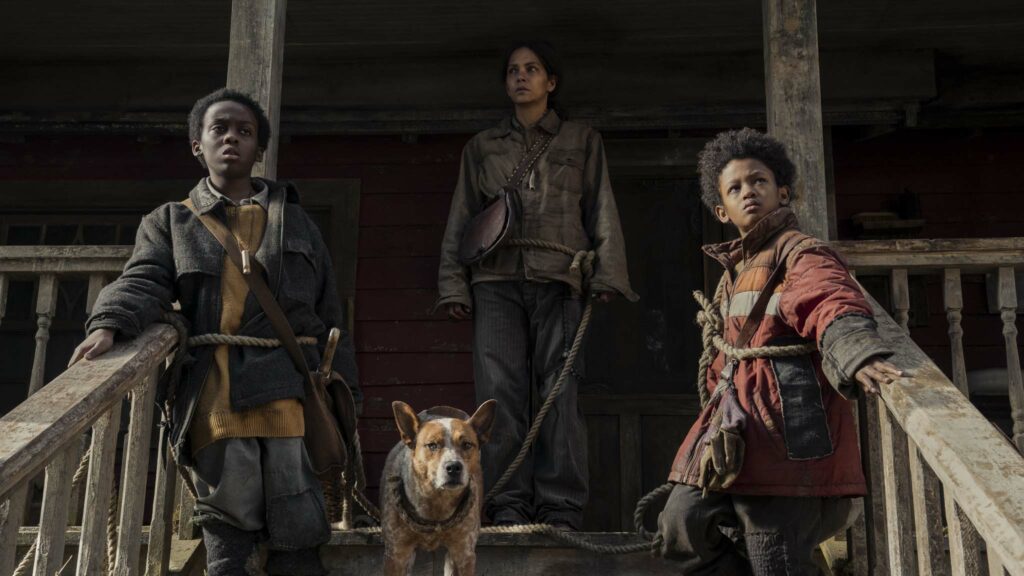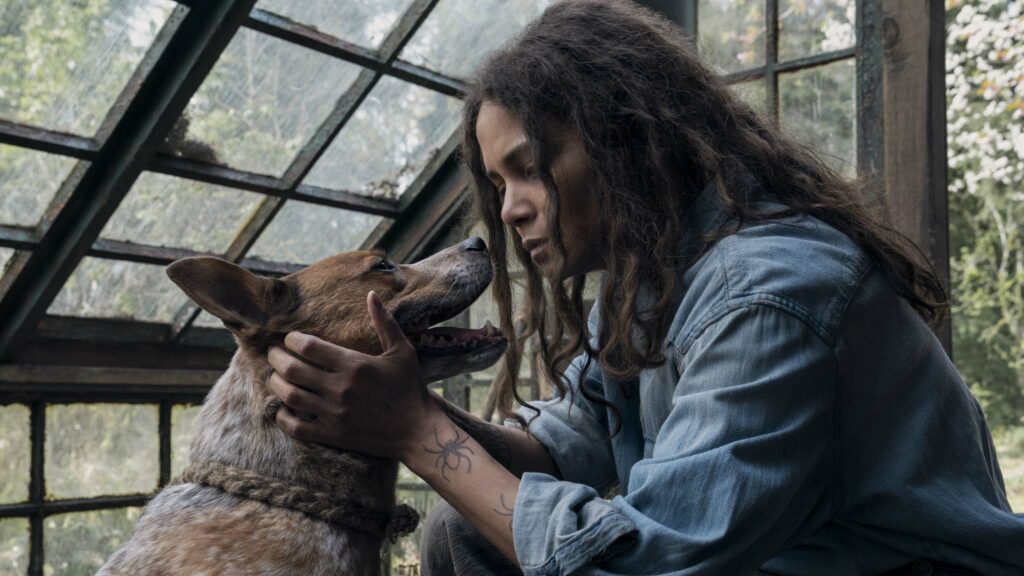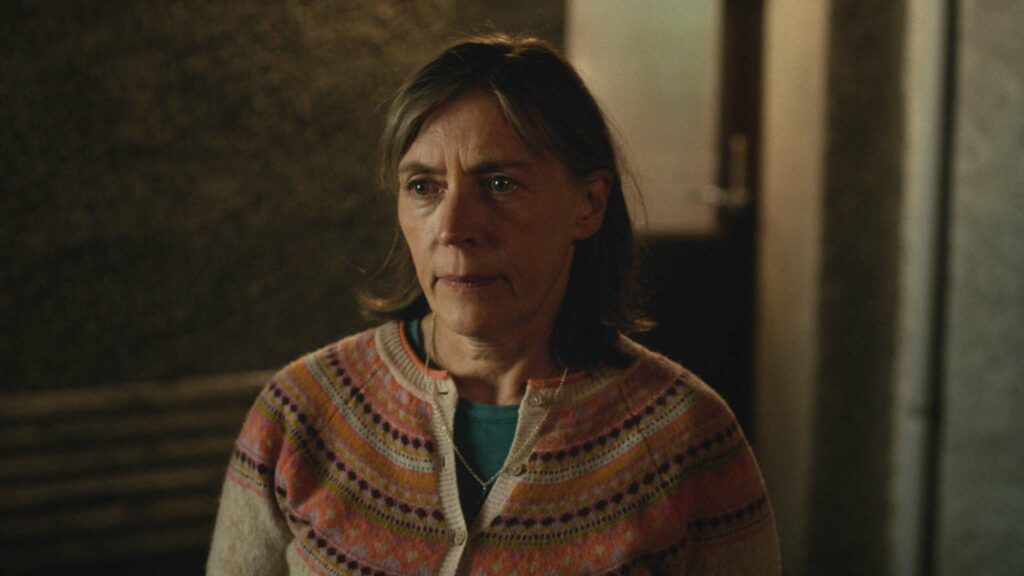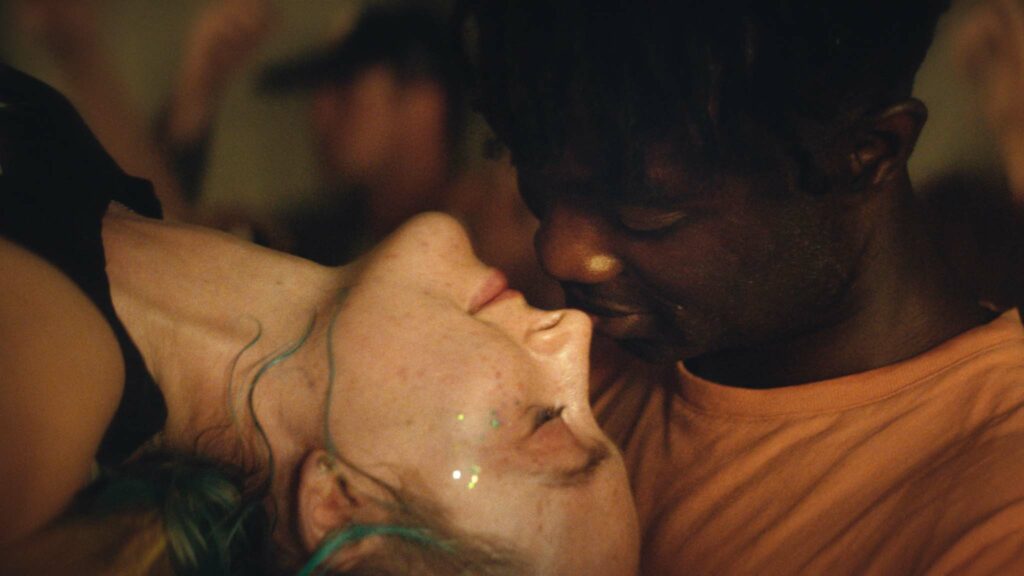Animation
Dragonkeeper (PG)
Review: Thanks to the airborne adventures of Viking son Hiccup and his adorable steed Toothless, we know how to train our dragons. Jianping Li and Salvador Simo’s animated coming-of-age story teaches us how to communicate with the majestic beasts by harnessing our chi, the vital bioelectrical life force that runs through every being but can only be mastered and controlled by a select few. A cantankerous old coot (voiced by Bill Bailey) marshals his chi to move a large rock and reveal a hidden subterranean path in the entertaining adventure Dragonkeeper, adapted from the award-winning first book of Australian author Carole Wilkinson’s series of fantasy novels.
Dubbed into English for family audiences, Li and Simo’s Chinese-Spanish co-production doffs a digital cap to Mulan and propels a self-doubting female protagonist on an epic quest of self-discovery and empowerment, facing dark magic and deception along the way. Bill Nighy’s dulcet tones as a wise dragon caress the ears like velvet, purring philosophical teachings (“Sometimes the wider road makes a journey longer”) to shepherd the spunky adolescent heroine along a path to her otherworldly destiny. En route, a pet rat provides obligatory cuteness and Anthony Howell’s necromancer villain commands creepy crawlies like spiders and bees to do his bidding. A gentle emotional kick in the final 10 minutes conjures a modest but appreciable downpour from tear ducts.
The pint-sized harbinger of these sniffles is plucky orphan Ping (Mayalinee Griffiths), who is discarded as a mewling infant into the care of elderly servant Lao Ma (Sarah Lam) in a snow-laden settlement atop Huangling Mountain. Portly bureaucrat Master Lan (Tony Jayawadena) oversees the running of the outpost and is responsible for feeding the last two surviving Imperial dragons, Danzi (Nighy) and Lu Yu (Beth Chalmers), who are incarcerated deep underground where they cannot wreak havoc on the realm. Ping has haunting dreams about the magical beasts and wonders if she is meant for something grander than servitude. “This is what we are. You can’t change destiny,” Lao Ma scolds the child.
Regardless, Ping has a close encounter with the winged behemoths and learns she is a fabled dragonkeeper, destined to care for Danzi and Lu Yu’s unborn son Kai. The ailing Emperor (Paul McEwan) mistakes Kai’s luminous dragon egg for a pearl of longevity and despatches his best soldier, Captain Kwan (Andrew Leung), and scheming advisor Diao (Howell) to forcibly separate Ping from her cargo.
Dragonkeeper skips lightly and respectfully through ancient mysticism, harking back to a golden age when men and hulking creatures existed in harmony. Violence is fantastical and seldom graphic, and scares remain mild even when an army of reanimated zombie soldiers threatens to overwhelm one valiant hero. A linear script attributed to five writers including author Wilkinson clearly has one beady eye on subsequent books.
Find Dragonkeeper in the cinemas
Fantasy
Hellboy: The Crooked Man (15)
Review: Twenty years after Oscar-winning director Guillermo del Toro gave birth to the first big screen incarnation of the Dark Horse comic book character, a laboured fourth film (and second reboot) pits the red-skinned and cloven-hoofed miscreant against witchcraft and wickedness in the Appalachian Mountains. Co-written by director Brian Taylor, Hellboy creator Mike Mignola and Christopher Golden, The Crooked Man realises a storyline first published in 2008, which delves a little deeper into the eponymous antihero’s tortured past.
The tone and cinematography of Taylor’s uneven picture are bleaker than earlier iterations with sporadic flashes of macabre humour punctuating the heebie-jeebies. Make-up, prosthetics and practical effects are impressively icky but the film’s budgetary limitations are distractingly evident with the hit-or-miss application of digital trickery in action set pieces. A monstrous spider that chases after Hellboy to set the plot in motion doesn’t gel convincingly with the surrounding forest environment and the creature is unintentionally humorous leaping from tree to tree in hot pursuit of the eponymous guardian. A climactic showdown at a church also has too much spit and not enough polish.
Jack Kesy puffs on endless cigarettes in the lead role, earnestly growling dialogue that veers from playful to portentous (“Dark things call to dark things”). His Hellboy certainly isn’t as charming, capricious or charismatic as Ron Perlman’s portrayal, or David Harbour’s reboot. Linear storytelling lifted straight off the comic book page propels us to 1959. Hellboy (Kesy) and Bureau for Paranormal Research and Defence (BPRD) parapsychologist Bobbie Jo Song (Adeline Rudolph) journey by train through Appalachia, escorting a wooden crate containing a sedated funnel web spider.
Bobbie Jo believes the creature may host a demonic entity so it is being kept in a state of sensory deprivation until they reach a controlled scientific environment. Dark magic buried within the foetid earth rouses the spider and in the ensuing fight with Hellboy, train carriages derail and the BPRD colleagues are stranded in the wilderness. The pair encounter returning prodigal son Tom Ferrell (Jefferson White), who fled his home after a close encounter with a demon called The Crooked Man (Martin Bassindale). This gnarled phantom collects a shiny coin for every soul he shepherds to Hell. Tom is convinced that he survived a tour of duty in the Second World War because of a pact forged with The Crooked Man in his ignorant youth. Bobbie Jo persuades Hellboy to accompany her up the mountain to investigate.
Hellboy: The Crooked Man is stuck in second gear from a thunderous opening foray with the giant arachnid. Exposition is clunky, particularly in the first hour as characters traipse through woods from one gloomily lit vignette to the next. Let there be lightness.
Find Hellboy: The Crooked Man in the cinemas
Drama
Megalopolis (15)
Review: Realising some dreams comes at a price. In the case of writer-director Francis Ford Coppola’s philosophical passion project, which dates back more than 40 years to a golden period after the back-to-back critical successes of The Godfather Part II and Apocalypse Now, that price tag is 120 million US dollars. Financed by the filmmaker through his family-branded wine business, Megalopolis is a bloated, bewildering and occasionally bewitching fable set in a utopian vision of New York modelled on the bacchanalian excesses and treachery of 63 BC Rome. The scope and ambition of Coppola’s endeavour is remarkable – he is literally backing himself – epitomised by a vertiginous opening sequence which demonstrates how Adam Driver’s idealist architect can temporarily halt the flow of time and defy the irresistible pull of gravity.
Alas, the 138-minute picture is fully susceptible to the laws of physics, and crashes down to earth soon after this temporal disruption when the same character begins reciting one of Hamlet’s most famous speeches for no obvious reason. Clarity eludes Megalopolis for the next two hours. Coppola’s script rambles through disparate hot-button topics – class and economic divisions, freedom of speech, deepfakes and AI intrusion, the politics of anger – but doesn’t have a sturdy, coherent narrative structure on which to hang these ideas.
Civil unrest simmers in economically divided New Rome as incumbent conservative Mayor Franklyn Cicero (Giancarlo Esposito) struggles to articulate his vision. He is constantly thwarted by Cesar Catilina (Driver), Nobel Prize-winning chairman of the Design Authority, who has been empowered by federal government to demolish heavily populated blocks of New Rome so he can construct a cityscape of the future. Megalopolis will be a beacon of hope, fashioned using the incredibly strong, synthesised building material that Cesar invented.
His grand vision is bankrolled by his wealthy uncle, Hamilton Crassus III (Jon Voight), head of Crassus National Bank. Cesar’s lover Wow Platinum (Aubrey Plaza), presenter of The Money Bunny financial news show, demands commitment. “I want to be one half of a power couple,” she snarls. “Which half,” Cesar coolly retorts, dampening her ardour. Wow elevates her social status elsewhere while the Mayor’s socialite daughter Julia (Nathalie Emmanuel) nurtures feelings for Cesar and his flamboyant cousin Clodio (Shia LaBeouf) orchestrates a Machiavellian scheme to seize the family fortune.
Megalopolis is a limping and leaden vanity project, which sparks curiosity for the wrong reasons. Coppola conjures some stunning imagery and occasionally his dialogue sings like when Cesar’s waspish mother, played with fervour by Talia Shire, campily quips: “Maybe alligators have the right idea. They eat their young.” Ambitious art ultimately eats itself and coughs up an eye-wateringly expensive and fabulously glossy fur ball.
Find Megalopolis in the cinemas
Comedy
My Old Ass (15)
Review: Nothing bad ever happens on shrooms. So says the 18-year-old protagonist of writer-director Megan Park’s terrific time-bending comedy drama shortly before she sips a heady infusion, the fungi’s psilocybin compound kicks in and she hallucinates a touching fireside encounter with her future self. What earth-shattering, destiny-shifting questions might tumble from gob-smacked lips in such a situation? Park’s generously warm-hearted script opts for a couple of obvious concerns then deviates from expectations, eliciting moving and utterly believable performances from Maisy Stella and Aubrey Plaza as present and future iterations of the same multi-faceted and flawed soul.
My Old Ass doesn’t tie itself, or us, in narrative knots by seeking an ingenious and vaguely plausible explanation for a temporal anomaly that allows an unremarkable person to cosily cohabit with themself and share information that could cause sizable ripples. About Time and 30 Going On 30 traversed similar territory and Parks casually presents her fanciful conceit then focuses intently on getting to know the characters and their connective emotional tissue rather than bamboozling us with science. She enthusiastically preaches well-thumbed life lessons about cherishing the time we have with those we love, and fully embraces the film’s unabashedly crowd-pleasing flourishes such as a hallucinogenic ode to Justin Bieber that is truly joyful.
Eighteen-year-old Elliott (Stella) has just three weeks left of the summer before she leaves her Canadian lakeside town for university and bids farewell to her family and best friends Ro (Kerrice Brooks) and Ruthie (Maddie Ziegler). She is excited to escape the annual harvest of cranberries on the family farm run by her parents Tom (Alain Goulem) and Kathy (Maria Dizzia), and fleeting rivalries with younger brothers Max (Seth Isaac Johnson) and Spencer (Carter Trozzolo). During an overnight camping expedition with her gal pals, Elliott drinks tea made from magic mushrooms.
Ro dances wildly and howls at the moon, Ruthie snuggles floppy-eared local wildlife and Elliott is stunned by a stranger (Plaza) sitting next to her on a log by the fire. “I’m 39-year-old you… what’s up?!” smiles older Elliott. Once identifies are confirmed, young Elliott winkles titbits out of her future self, including advice about summer worker Chad (Percy Hynes White) that could impact the 18-year-old’s relationship with girlfriend Chelsea (Alexandria Rivera).
Taking its title from older Elliott’s affectionate nickname, My Old Ass surfs a wave of nostalgia for precious moments before the fear of failure or loss stifles the reckless abandon of youth. Plaza makes an indelible impact with surprisingly little screen time – one silent hug is particularly gut-wrenching – but Stella carries the picture and she is fearless during a challenging final stretch of abrupt shifts of tone. Composer Jaco Caraco’s score, with additional music by Tyler Hilton, echoes the dramatic swells. Winning in life isn’t about having all the answers.
Find My Old Ass in the cinemas
Horror
Never Let Go (15)
Review: Loving someone deeply can mean letting them go. In director Alexandre Aja’s supernatural horror, love means tying your nearest and dearest to the rustic family home with ropes and warning them that death comes quickly to anyone who dares to loosen the knots. Penned by KC Coughlin and Ryan Grassby, Never Let Go establishes its nightmarish premise with minimal dramatic fat, pitting Halle Berry’s terrified mother and her two young children against an invisible presence that supposedly flourishes just beyond their front doorstep in the woods
The opening hour keeps us guessing whether this insidious threat is a product of mental illness, and thus a real and present danger to the youngsters’ welfare and long-term survival. Once the film clarifies where battle lines should be drawn, and who (if anyone) is of sound mind to make life-or-death decisions, tension dissipates and preteen co-stars Percy Daggs IV and Anthony B Jenkins are left to bench-press the lightweight emotions. Screen chemistry between the three leads holds firm when the plot shows visible signs of disrepair and director Aja exercises restraint with jump scares relative to the strong bloody violence and gore of his earlier films, including the 2006 remake of The Hills Have Eyes.
A mentally and physically exhausted single mother (Berry) is determined to protect twins Nolan (Daggs IV) and Samuel (Jenkins) from the evil that has consumed the world. The family’s cabin is a sacred space that shields from harm. Every day, the clan chants a pledge of gratitude: “O blessed house of ancient wood/Shelter to the pure and good/We’ll keep you bright and never roam/Heaven is here within our home.” hen the family ventures outside to gather supplies, they must each tie a rope around their waist, which is securely attached to the family home and thus an extension of its protection.
“All it takes is one touch without the rope on… then not even the house can save you,” the mother warns her boys. Only she can see the shape-shifting malevolence, which takes many fork-tongued forms including the boys’ father (William Catlett), and young Nolan begins to question if the evil is a figment of his parent’s spiralling paranoia. Confusion and disbelief fester into open defiance and familial bonds fray.
Never Let Go doesn’t exert a choking, iron-tight grip on our attention teased by the title but Aja’s survival thriller elicits mild chills of discomfort and doesn’t outstay its welcome. Berry fully embodies a fiercely protective mother bear, who will cross moral boundaries if she can rationalise her choices as beneficial for her brood. Daggs IV and Jenkins are compelling and rise to the challenge of a physically demanding resolution open to different interpretations.
Find Never Let Go in the cinemas
Drama
The Outrun (15)
Review: In the unflinching 2015 memoir The Outrun, about her recovery from addiction on her childhood home of the Orkney Islands, off the north-eastern coast of Scotland, Amy Liptrot draws parallels between the rugged and unforgiving Orcadian landscape and her rehabilitation. In one section, she likens herself to a jellyfish stranded on rocks at the mercy of the unrelenting elements. “I was washed up: no longer buoyant, battered and storm-tossed,” she poetically relates. Director Nora Fingscheidt’s austere dramatisation of Liptrot’s work, co-written by the German filmmaker and the Scottish author, was filmed on location in Orkney and treats the islands as a silent yet powerful supporting cast member.
Cinematographer Yunus Roy Imer captures dramatic topography where sheep outnumber people to completely immerse us in 5,000 years of history dating back to the Neolithic period, cloaked in folklore and superstition. You can almost feel salt spray spatter off the screen as waves crash angrily against sentry-like cliffs and whipcracks of freezing air send shivers through expanses of wild grass. This vibrant backdrop frames a formidable central performance from Saoirse Ronan as Liptrot’s fictionalised alter ego. “I can’t be happy sober,” she laments after she hits rock bottom and rediscovers tattered shreds of herself on the 12-step programme.
Free-spirit Rona (Ronan) is clinging on to her late 20s with grim determination. She continues her biology studies in London where the siren song of late-night drinks and revelry with concerned boyfriend Daynin (Paapa Essiedu) invariably end in alcohol-fuelled rage, embarrassment and aching regret. Rona’s self-destructive behaviour sounds a death knell for the relationship and she wearily enters rehab to face her demons.
She celebrates 117 days sober by returning home to Orkney to take a solitary job monitoring the local population of endangered corncrakes on behalf of an ornithological preservation society. Rona wages daily battles with addiction, attends a local support group and risks opening old wounds by reconnecting with her deeply religious mother Annie (Saskia Reeves) and bipolar father Andrew (Stephen Dillane). Far from the temptations of London, Rona sombrely accepts that she may not leave the wind-battered archipelago the same way that she arrived, by boat: “If you go mad in Orkney, they just fly you out…”
The Outrun is dominated by Ronan’s no-holds-barred portrayal of a young woman choking and spluttering in the vice-like grip of alcohol dependency. Her screams of anguish compete with the roars of untameable Mother Nature on Orkney and we root for small victories in a lifelong battle. Joy is fleeting in Fingscheidt’s grimly compelling picture and the two-hour running time does not pass by quickly as cycles of misery and intoxicated oblivion repeat.
Find The Outrun in the cinemas


